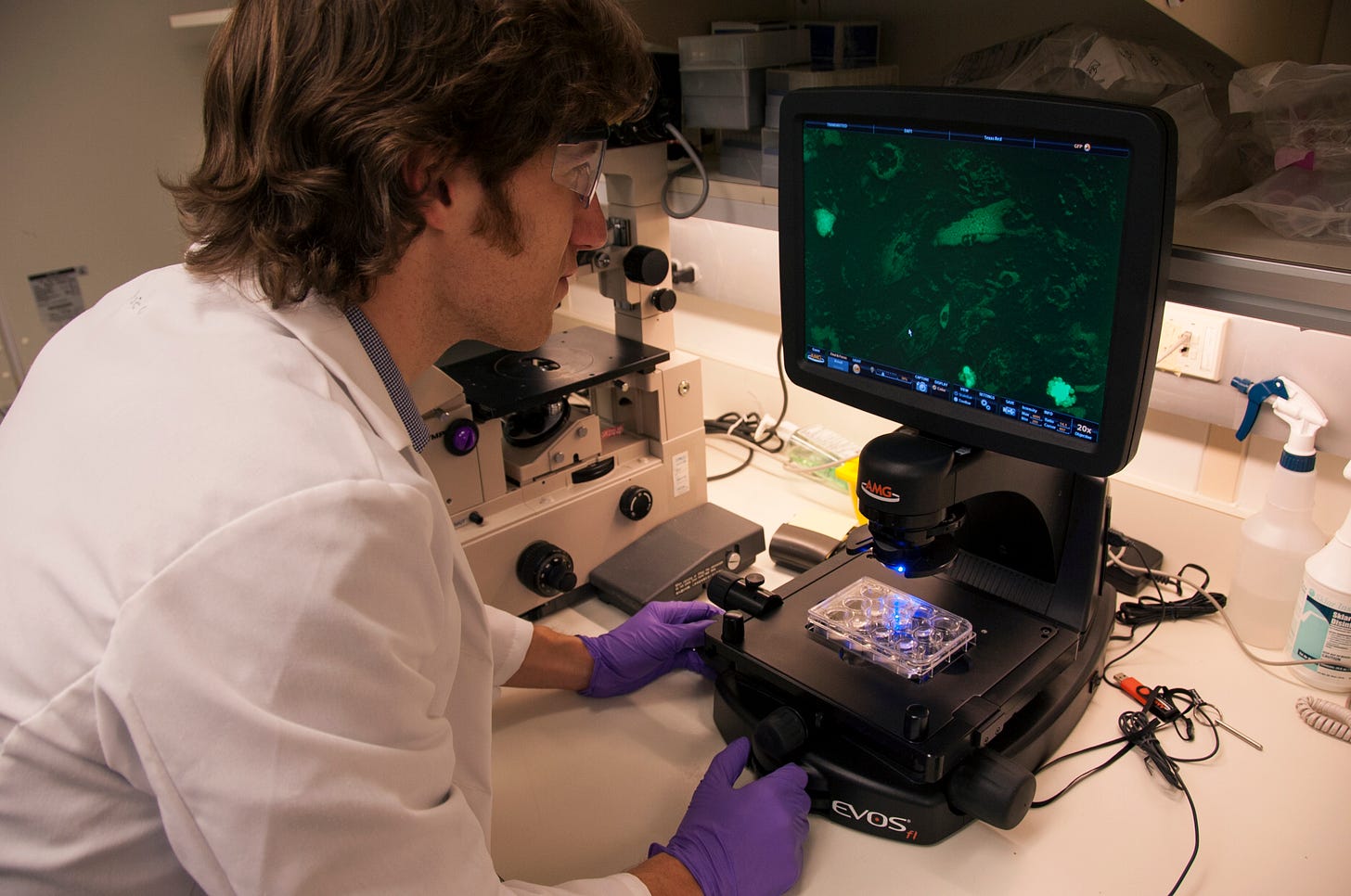Science and democracy need each other
Description

Episode Summary
After language, the scientific method is probably humanity’s greatest achievement; it’s a veritable engine of invention that has allowed us to bend rivers to our will, split the atom and cure many diseases. But while scientific progress has given us the tools to reshape the world and even change our bodies, we haven’t yet figured out how to rewire our mental hardware. The same cognitive instincts that helped our ancestors survive in the wild are now making many of us vulnerable.
Although we think of them as separate today, science and superstition were one and the same. For the vast majority of human history, astronomy and astrology were together. Alchemy and chemistry were coeval.
Over the centuries, however, science separated itself from pseudoscience, but the old beliefs never went away; they just went underground. As science became increasingly specialized and isolated from the general public, however, these “undead sciences” began gathering political power, a development that far too many advocates of progress did not perceive.
In the second Trump administration, superstition has seized control of America’s executive branch in the person of Russell Vought, a Christian nationalist extremist who has been manically destroying as much of America’s scientific achievements as he possibly can, assisted by Robert F. Kennedy Jr., a deranged lawyer who has been slashing and burning medical research and treatment.
Let’s not sugarcoat it. There are a lot of terrible things happening in science today. But there are also a lot of courageous people standing up to tell the world what’s happening, and standing up for the reality that science and democracy depend upon each other.
I have two guests joining me in this episode to discuss: Jenna Norton is a program director at the National Institutes of Health, where she studies the disparities in urology and kidney health, and Mark Histed. He also works at NIH, where he is a senior investigator studying neural computation and behavior. Each is here in their personal capacity, and as members of the Science and Freedom Alliance.
The video of this episode is available, the transcript is below. Because of its length, some podcast apps and email programs may truncate it. Access the episode page to get the full text. You can subscribe to Theory of Change and other Flux podcasts on Apple Podcasts, Spotify, Amazon Podcasts, YouTube, Patreon, Substack, and elsewhere.
Theory of Change and Flux are listener supported. We need your help to keep going. Please subscribe to stay in touch!
Related Content
As science faces external attacks, it needs to look within to defend and reform
The sociology behind why Donald Trump loves the ‘poorly educated’
How ‘intuitionist’ thinking became political—and weaponized by the global far right
Government has a duty to teach critical thinking and science literacy to both kids and adults
Why tech billionaires decided to team up with creationists to attack democracy
Right-wing pundits don’t generally try to make arguments, they try to affirm emotions
How liberalism lost touch with the public, and its ability to defend itself
Why Trump is attacking universities
Audio Chapters
00:00 — Introduction
12:16 — The importance of science communication and community-participation science
23:01 — Politics as the master science
27:54 — Jay Bhattacharya and the weaponization of objectivity
32:51 — Scientific truth and the Great Barrington Declaration
42:30 — Open versus closed epistemologies
47:53 — The destruction of American scientific leadership
52:59 — The value of curiosity-driven research
57:00 — The false promise of AI replacing human scientists
01:00:41 — Organizing scientists and the Bethesda Declaration
01:03:59 — Science and Freedom Alliance mission
01:07:12 — Building institutions for public engagement
Audio Transcript
The following is a machine-generated transcript of the audio that has not been proofed. It is provided for convenience purposes only.
MATTHEW SHEFFIELD: Thanks for joining me guys. Mark, why don’t you get started just very briefly, tell us who you are and what you do. And then Jenna, we’ll have you do the same.
MARK HISTED: Great. Yeah, thanks. Very happy to be here. My name’s Mark Histed. I am a currently a scientist who runs a group at NIH. I’m a neuroscientist and we study effectively how the many trillion, the many billions to trillions of connections in your brain create the way the brain works, how the brain is wired.
And I used to say we would, we worked between sort of math and biology these days, I would say we work between AI and biology, right? [00:04:00 ] We have these large AI systems that are connected in complex ways that do things that are difficult to understand. And in many ways, that’s the way that’s, from my perspective, that’s what’s going on in the brain.
And a lot of this work is directed at understanding what we have, what people have called diseases of wiring, right? What goes wrong in diseases like dementia. Why memory loss happens, what goes wrong in schizophrenia. And this is the kind of like basic neuroscience work that





